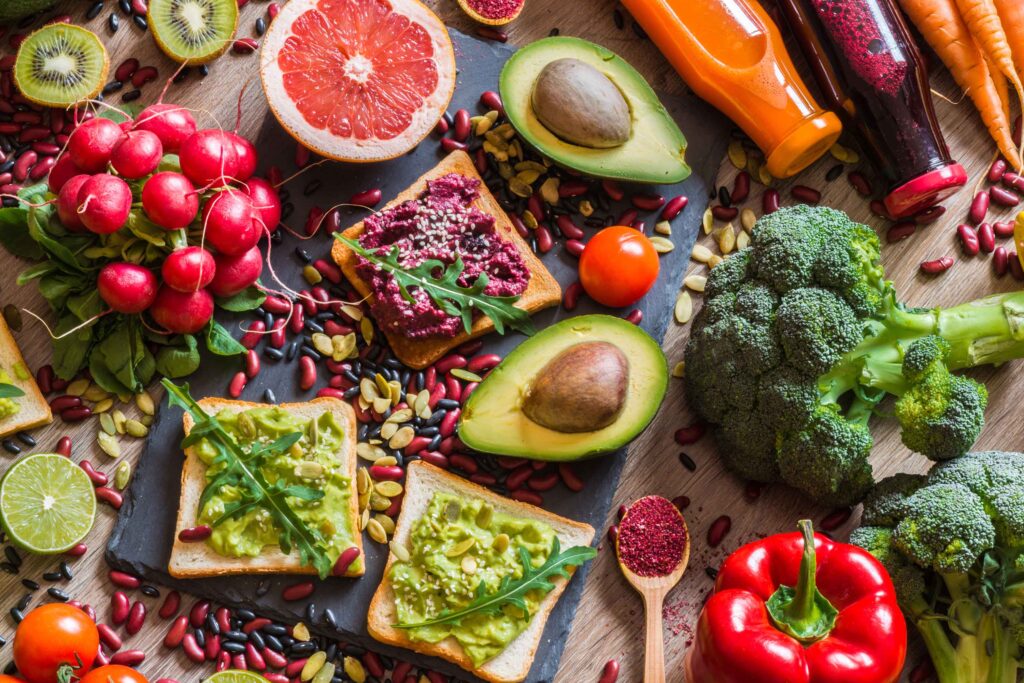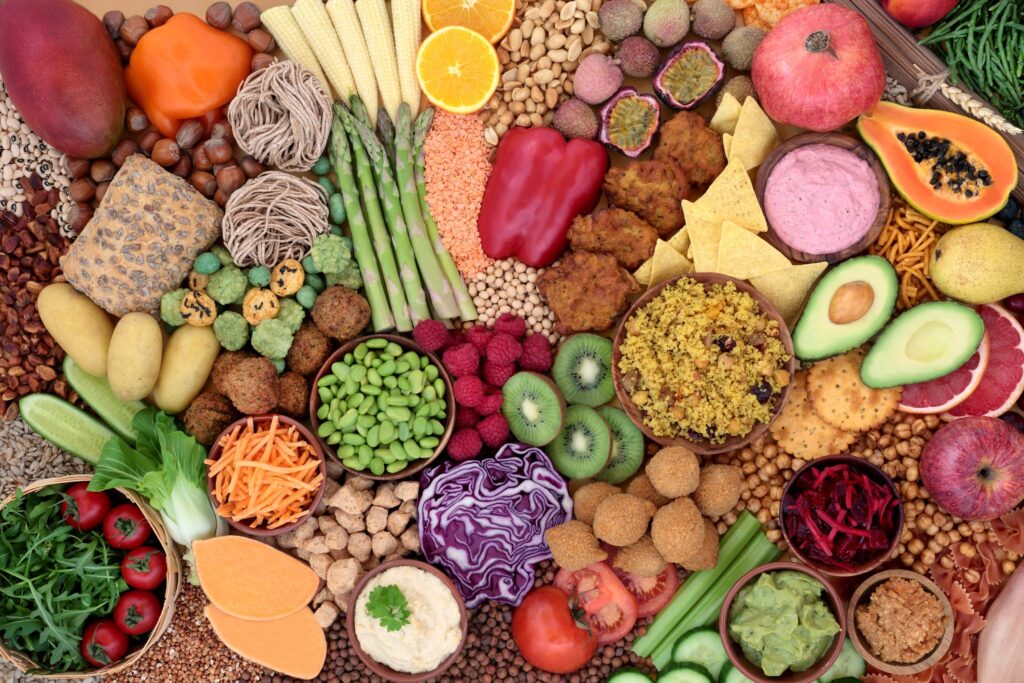- May 14, 2024
- 0
- Uncategorized
A Vegan Diet
A vegan diet is a type of plant-based diet that excludes all animal products, including meat, dairy, eggs, and honey. Instead, individuals following the diet consume a variety of plant-based foods, including fruits, vegetables, grains, legumes, nuts, seeds, and plant-based alternatives to animal products. While some people choose to follow the diet for ethical reasons, such as concerns about animal welfare or environmental sustainability, others adopt a vegan diet for health reasons or to support weight loss goals.

Vegan Diet Foods:
One of the key principles of a vegan diet is the emphasis on whole, minimally processed plant-based foods. This includes a wide variety of fruits and vegetables, which provide essential vitamins, minerals, and antioxidants to support overall health and well-being. Other plant-based foods commonly consumed on the diet include grains such as rice, quinoa, and oats, as well as legumes such as beans, lentils, and chickpeas, which are excellent sources of protein, fiber, and other nutrients.
Plant-Based Protein Sources:
Contrary to popular belief, it is entirely possible to meet your protein needs on the diet. There are many plant-based sources of protein available, including beans, lentils, chickpeas, tofu, tempeh, edamame, seitan, and vegan protein powders. Additionally, nuts and seeds such as almonds, walnuts, chia seeds, and hemp seeds are also excellent sources of protein and healthy fats. By incorporating a variety of plant-based protein sources into your diet, you can easily meet your protein needs without consuming animal products.
Plant-Based Dairy Alternatives:
Many people assume that following a vegan diet means giving up dairy products such as milk, cheese, and yogurt. However, there are now a wide variety of plant-based dairy alternatives available that are suitable for vegans. These include almond milk, soy milk, oat milk, coconut milk, and rice milk, which can be used in place of cow’s milk in recipes and beverages. Additionally, there are many plant-based alternatives to cheese and yogurt made from ingredients such as cashews, almonds, soy, and coconut, which provide the same creamy texture and delicious flavor as their dairy counterparts.
Egg Replacements in Vegan Diet:
Eggs are another common animal product that is excluded from vegan diets. However, there are many plant-based alternatives to eggs that can be used in cooking and baking. Some popular egg replacements include tofu, mashed banana, applesauce, flaxseed meal, chia seeds, and commercial egg replacers. These ingredients can be used to bind, leaven, and moisten recipes just like eggs, making them suitable for vegans and individuals with egg allergies.
Health Benefits of a Vegan Diet:
Numerous studies have shown that a well-planned vegan diet can provide many health benefits. For example, research has linked with diets to a reduced risk of chronic diseases such as heart disease, type 2 diabetes, high blood pressure, and certain types of cancer. Additionally, these diets are typically higher in fiber, vitamins, minerals, and antioxidants, which can help support overall health and well-being. By focusing on whole, plant-based foods and avoiding processed and fried foods, individuals following a vegan diet can improve their health and reduce their risk of chronic disease.

Environmental and Ethical Considerations for Vegan Diet:
In addition to the health benefits, many people choose to follow a vegan diet for ethical and environmental reasons. The production of animal products such as meat, dairy, and eggs are associated with environmental issues such as deforestation, water pollution, and greenhouse gas emissions. Additionally, many people are concerned about the treatment of animals raised for food, including issues such as factory farming, overcrowding, and inhumane slaughter practices. By choosing to follow a vegan diet, individuals can reduce their environmental impact and minimize their contribution to animal suffering.
Conclusion:
In summary, a vegan diet is a type of plant-based diet that excludes all animal products, including meat, dairy, eggs, and honey. Instead, individuals following a vegan diet consume a variety of plant-based foods, including fruits, vegetables, grains, legumes, nuts, seeds, and plant-based alternatives to animal products. By focusing on whole, minimally processed foods and incorporating a variety of plant-based protein sources into their diet, vegans can easily meet their nutritional needs and enjoy many health benefits. Additionally, by choosing to follow a vegan diet, individuals can reduce their environmental impact and minimize their contribution to animal suffering.